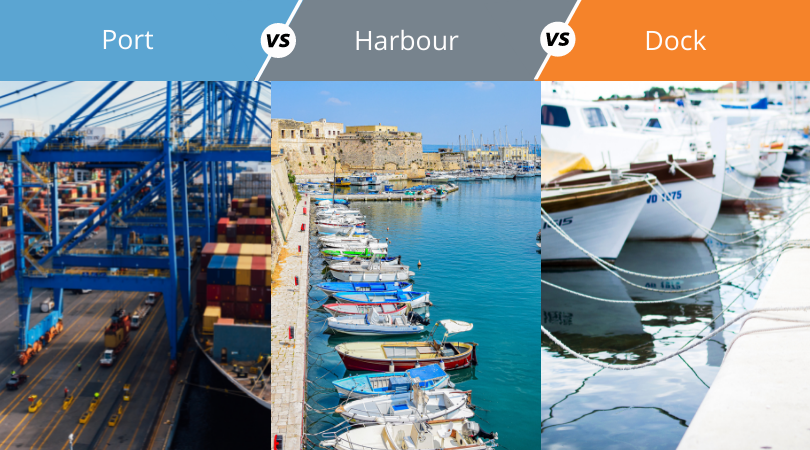Difference Between Dock, Harbour, and Port
There are various terminologies used in the marine industry. But ordinary people are unaware of specific terms that are confused with one another. Here's an article that explains the difference between a dock, harbour, and port.
Dock
A dock is a human-made structure or landing area near the shore where boats or ships are loaded, unloaded, and repaired. The ships and boats are designated with a docking space to load and unload before mooring. It is usually a place to connect passengers to the land.
Harbour
Harbour is a place on the coast where boats and ships moor to allow the transfer of goods and passengers. A harbour is generally a sheltered waterbody that can be natural or partially human-made. There must be a harbour that exists before setting up a port facility. Several harbours sometimes serve some particular ports.
Harbours have direct access to open water, and they are deep enough for safe entry and exit of ships. They will also be defensive against huge waves and storms.
Harbours are categorized based on their location and structure. There are coastal harbours, coastal breakwater harbours, tide gate harbours, natural river harbours, lake or canal harbours, etc., that operate for different services.
Port
A port is generally a docking place where ships land on the coast of the sea or ocean. Ports are usually located near the sea coast or estuary. However, some ports can also be attainable near rivers or canals. Ships dock at the ports to load and offload their passengers and cargo. The majority of the goods and material transports are carried out commonly via ports. Ships usually have docks in ports to discharge goods and passengers. In addition, several small harbours serve some ports.
Ports are one of the significant elements of the global economy as most of the worldwide merchandise and trade carry out through ports. It serves as one of the hubs to allow multinational trade and exchange. From a layman's perspective, ports are places that facilitate the loading and unloading of passengers and cargo goods. From a business point of view, a port is a convergence point for cargo domains and businesses.
Ports not only serve for the commercial welfare or trades. Some ports facilitate exchanges solely, while some ports provide a platform for travellers to enter and leave the cruises, and some ports maybe for another objective. The facilities available in a port rely on the services they handle. It is a significant point for the naval and armed forces to set warships before moving into the battle spaces. The port authority is generally under the government directly or a semi-governmental public administration.


















